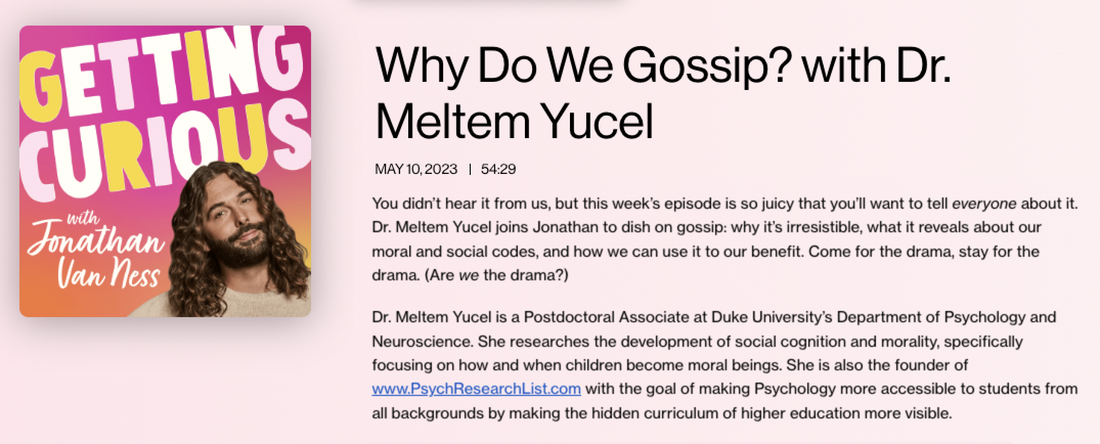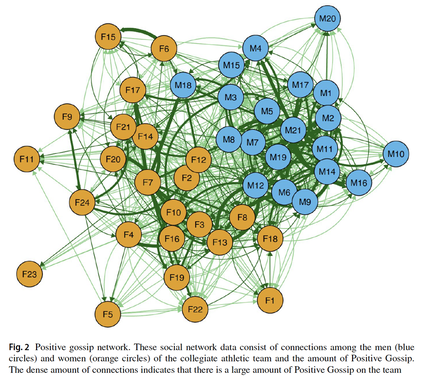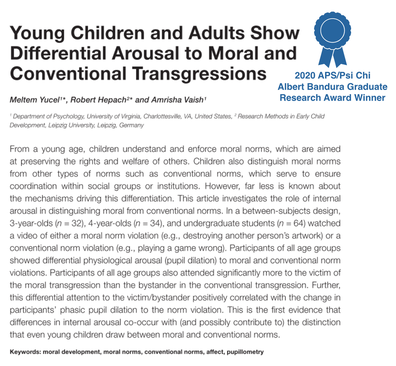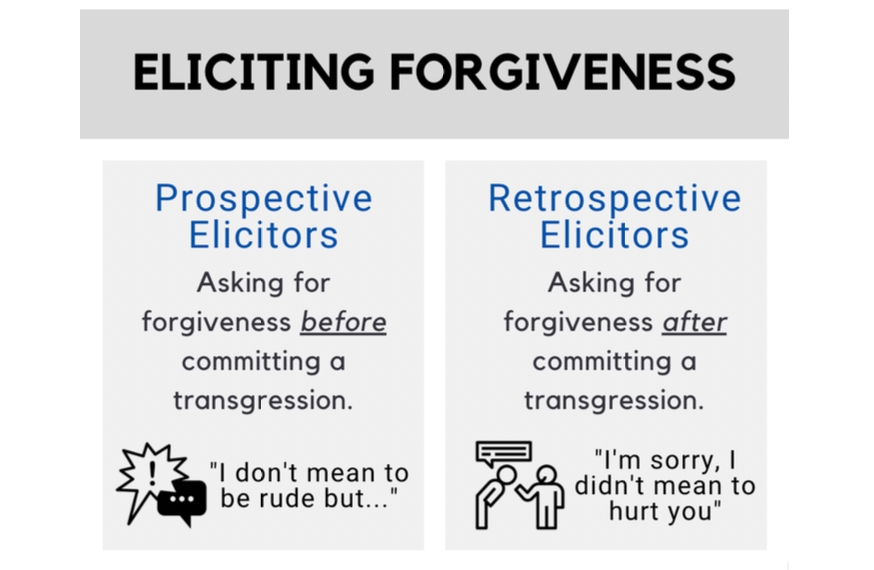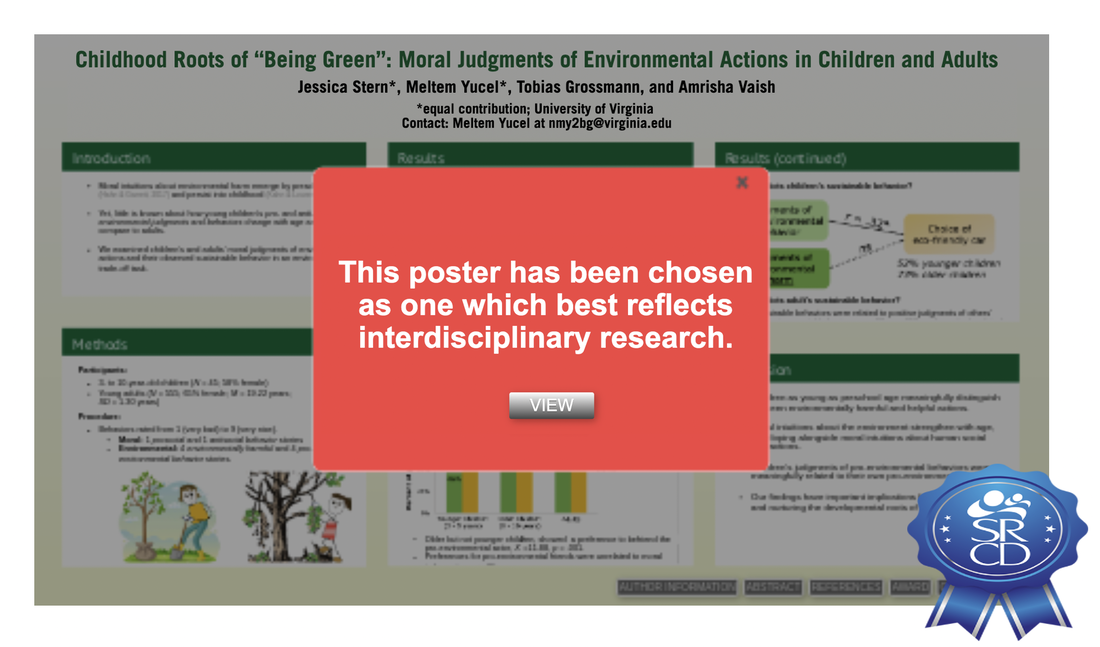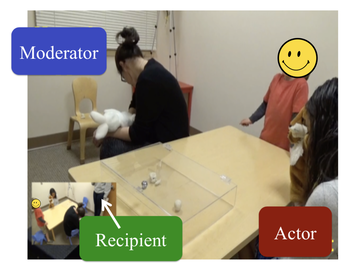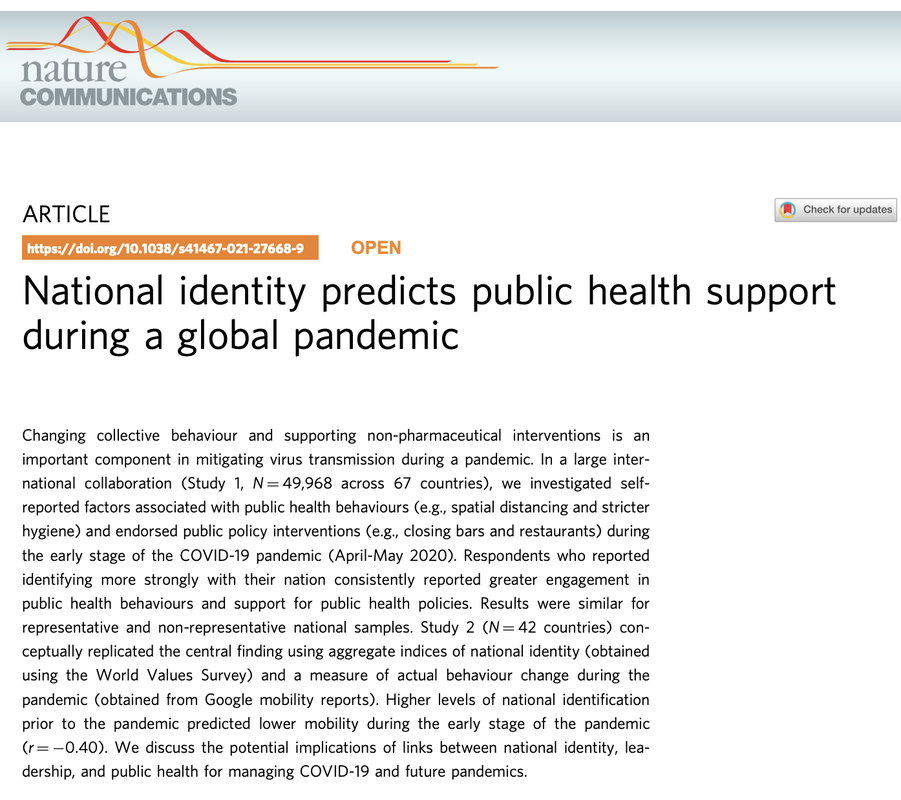My primary interest lies in the development of social cognition and morality.
Specifically, I want to explain how humans perceive rule violations, why they respond to rule violations, whether this changes with age, and how their interventions may serve evolutionary functions. Learn more about my work here.
Specifically, I want to explain how humans perceive rule violations, why they respond to rule violations, whether this changes with age, and how their interventions may serve evolutionary functions. Learn more about my work here.
Children & Adults
When, how, and why do we gossip?
I investigate how and when young children and adults gossip. To listen to my recent podcast episode on Getting Curious with Jonathan Van Ness: https://jonathanvanness.com/podcast/why-do-we-gossip-with-dr-meltem-yucel/
I investigate how and when young children and adults gossip. To listen to my recent podcast episode on Getting Curious with Jonathan Van Ness: https://jonathanvanness.com/podcast/why-do-we-gossip-with-dr-meltem-yucel/
|
Using social network analysis we found that spread of both positive and negative gossip may influence and be influenced by friendship connections in a social network (Yucel, Sjobeck, Glass, & Rottman, 2021, Human Nature).
Click here for a free copy of this paper. Media mentions: UVA Today, Newsbreak, The Duke Daily Media mentions for our upcoming gossip project with children: Cornell Chronicle |
|
|
Do young children and adults see fairness violations as immoral?
Here's a 3 minute video summary of my dissertation work on children's understanding of fairness that won the First Place Award and the People's Choice Award at the University of Virginia's Three Minute Thesis Competition. I received an American Psychological Association Dissertation Research Award to conduct these studies. My dissertation work also received the 2022 Society for Affective Science Best Dissertation in Affective Science Award and was selected as a 2nd runner-up for the 2022 International Society for Research on Emotion Dissertation Award. The manuscript from this study is published in Developmental Psychology (Yucel, Drell, Jaswal, & Vaish, 2022). |
|
Why do young children and adults care more about moral violations than conventional violations?
In this study, I investigated how children understand moral and conventional norms using multiple methods (behavioral, eye-tracking, and pupillometry). This work was presented at SRCD 2019 as a symposium talk and has been published in Frontiers in Psychology (Yucel, Hepach, & Vaish, 2020). This paper won the 2020 Psi Chi/APS Albert Bandura Graduate Research Award! Media mentions: UVA Today, NeuroscienceNews, The Duke Daily, MedicalXpress, Ozyegin University News, and Merdiven Alti Terapi (podcast)! |
|
How do children and adults elicit forgiveness?
When we commit transgressions, we need to be forgiven to restore our friendships and social standing. Two main ways we can elicit forgiveness is through asking for forgiveness after committing a transgression (i.e., retrospective elicitors) or before committing a transgression (i.e., prospective elicitors). Research on retrospective elicitors with adults and children indicates that apologizing or showing remorse elicits forgiveness from both victims and bystanders, and sheds light on the nuances of such elicitors and their functions. Far less is known about how adults and children respond to prospective elicitors of forgiveness, such as disclaimers (statements that prepare the listener for a transgression or a failure of character or performance, e.g., “I don't mean to be rude but…”), and how the functions and effectiveness of prospective elicitors compare to those of retrospective elicitors. Furthermore, much less is known about the additive effects of using both retrospective and prospective elicitors of forgiveness. A better understanding of how and when forgiveness is elicited in childhood and through adulthood promises to shed light on human sociality and cooperativeness (Yucel & Vaish, 2021, WIREs Cognitive Science). Media mentions: The It's Innate! Podcast |
|
Childhood roots of 'being green':
In this study, we looked at 3- to 10-year-old children's and young adults' judgments of environmental actions. We found that moral intuitions about the environment strengthen with age, developing alongside moral intuitions about human social interactions (Stern, Yucel, Grossmann, & Vaish, under review). This poster received the Strategic Plan Poster Winner designation from the Society for Research in Child Development (SRCD). |
|
Why do young children enforce norms?
In this study, I looked at whether 3-year-old children enforce norms (by protesting or tattling) for selfish or cooperative reasons. My work has shown that children tattle for moral reasons, rather than selfish ones (Yucel & Vaish, 2018). Media mentions: Science Daily, Charlotte Observer, Fatherly, YahooSports, MedicalXpress, EurekAlert!, Savy Auntie and Watercooler Neuroscience (podcast)! |
|
National identity predicts public health support during a global pandemic
Our new paper published in Nature Communications finds that national identity predicts public health support during the COVID19 pandemic. We found a clear positive relationship between national identification and limiting physical contact, improving hygiene, and supporting public health policies around the globe. We replicated the pattern using public health attitudes in 67 countries (N = 49,968) and google mobility data in 42 countries. To read the paper: https://doi.org/10.1038/s41467-021-27668-9 (Van Bavel, ... Yucel, M., ... Zwaan, 2022, Nature Communications; Azevedo, …Yucel, M., ... Sampaio, 2023, Scientific Data; Pavlovic, T., ...Yucel, M., ..., & Van Bavel, J. J. (2022). PNAS Nexus)
Media Mentions: NYU News |
Great Apes
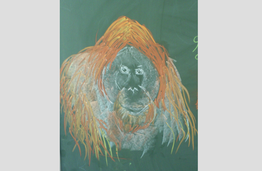 I also love drawing them!
I also love drawing them!
Moreover, I have a side interest in evolutionary forms of social cognition in non-human primates, stemming from my internship at MPI in Leipzig, Germany where I had a chance to work with bonobos, chimps, orangutans, and gorillas.
